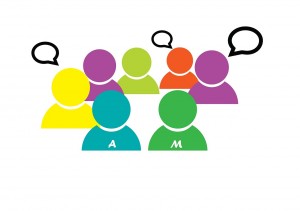“Words of comfort, skillfully administered, are the oldest therapy known to man.” – Louis Nizer
– by Ken Fields, MA, LMHC / Talkspace Therapist
There is a big difference between advice and therapy, and this blog post will address that difference. As a therapist, I have received a fairly large amount of inquires from people asking what they should do in a particular situation. For example, “My spouse is having an affair, what should I do?” Or, “I don’t like my job, what advice can you give me?”
I can give you plenty of advice, but so can your family, friends, and the myriad of advice columns found in almost all of the newspapers and magazines. Never mind the numerous advice forums across the web. But that’s not what therapy is about.
When dealing with certain problems, for which specific technical answers are available, professional advice is definitely a good idea. So, if you are having car trouble, seeking advice from a mechanic is wise decision. Similarly, if you are experiencing physical pain, going for medical advice is usually a good idea.
But, when it comes to decision making in regards to any number of problems that may arise in our personal lives, taking advice from our peers or even professional advice-givers may not be the best approach. Everybody has their opinions and beliefs, and they are filtered through their own subjective experiences.
Think about it, if you seek out advice about marital issues, you will get many different answers. And it’s incredibly easy to get confused when you’re bombarded with contrary information.
A professional therapist will never tell you what you should do. Rather, a therapist will help YOU figure out what you should do, what you want to do, what you need to do, what you can do, and/or what you’ll choose to do.
If a person asks a friend, “What should I do about my spouse’s infidelity?”, the answer might be “Leave!” If that same question was addressed to a therapist, there wouldn’t be an answer.
Rather, the therapist may respond with a reflective statement such as “You sound confused about what you want to do about your spouse’s infidelity.” Or, a therapist may respond with a more solution-oriented question, like “What can you do about your spouse’s infidelity?” Do you see a difference?
The goal of most advice-givers is to provide you with an answer. The goal of the therapist is to help you answer your own question.
In other words, a therapist helps by providing reflective feedback, supportive dialogue, and thoughtful inquiry so as to clarify the situation. The goal is to make the options available to you as visible as possible. This helps you more thoroughly understand the various ramifications of the decisions you could make.
Getting advice is often quick and easy. Therapy, however, takes time and requires the person seeking it to put in a lot of work. It’s like the old adage, “Give a man a fish, feed him for a day; teach a man to fish, he feeds himself for life.” With that in mind, here’s the difference between advice and therapy: advice is like someone giving you a fish, therapy is professional therapist teaching you to fish for yourself.
The reason therapists don’t give out advice is because the point of therapy is to empower you to make your own decisions.
Hey there! Did you like what you just read? Subscribe to our newsletter for all of the newest content and a chance to win our weekly book giveaway!:
Talkspace articles are written by experienced mental health-wellness contributors; they are grounded in scientific research and evidence-based practices. Articles are extensively reviewed by our team of clinical experts (therapists and psychiatrists of various specialties) to ensure content is accurate and on par with current industry standards.
Our goal at Talkspace is to provide the most up-to-date, valuable, and objective information on mental health-related topics in order to help readers make informed decisions.
Articles contain trusted third-party sources that are either directly linked to in the text or listed at the bottom to take readers directly to the source.






